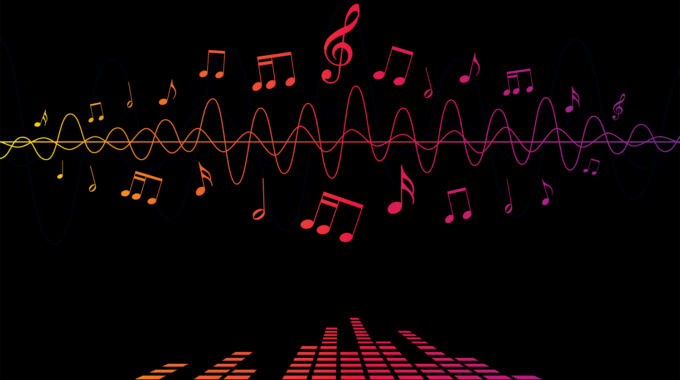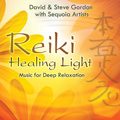How do binaural beats work? For that matter, what are binaural beats? Do you know…

How to Break an Addiction That’s Been Holding Back Your Life
Is there an easy, fool-proof way to learn how to break an addiction? And when we say addiction, we’re not only talking about substance abuse or gambling addictions.
We’re also talking about other types of addiction. What about addiction to food, or maybe an addiction to sugar?
And these days, we can add another pervasive form of addiction to the list: addiction to social media.
Think about it.
Or perhaps the granddaddy of all addictions these days, an addiction to their phone? How on earth can you break an addiction to your phone when you carry it with you everywhere you go? 
The Varied and Surprising Forms of Addiction
When we think of addiction, what usually comes to mind is an addiction to drugs or alcohol.
Overcoming alcoholism or finding the strength to stop using drugs is anything but easy. That much is a given.
But the truth is, addictive behaviors can attach themselves to almost anything.
True, substance addictions happen because they affect the brain directly. But other addictions result from oft-repeated patterns that over time we find almost impossible to quit.
So the answer to what causes addiction is not as straightforward as you might think.
If a substance or action provides pleasure, the addicted brain will seek it out. That’s why addictions are so hard to break.
Addictions That Sabotage Your Happiness
Take a quick look at this list. Some of these types of addiction will be obvious. Others may never have crossed your mind.
- Addiction to alcohol
- Drug addiction
- Addiction to someone
- Social media/technology addiction
- Addiction to stress
- Addiction to your smartphone
- TV addiction
- Fast food addiction
- Addiction to sugar
- Addiction to food
- Smoking addiction

While this is not an all-inclusive list, it does provide a pretty good overview of some of the most common forms of addiction.
What Causes the Addicted Brain?
Before we get into learning how to break an addiction, you first need to understand what causes addiction in the first place. Determining the cause will help provide the key to breaking addictive behavior.
You probably already know that chemical changes in the brain from drugs or alcohol cause addiction. But there is growing evidence that a deeply ingrained habit, in itself, also influences the mind. This leads to increased cravings.
Increased cravings lead to addiction. It’s a vicious cycle.

How do You Know if You Have an Addiction?
It’s likely you already know someone who suffers from addiction in some way. An alcoholic parent, spouse, family member, friend, or co-worker is depressingly familiar.
But what about you? Are you exhibiting some form of addictive behavior without realizing it?
Surely not, you say.
Well, I say, not so fast.
Is It Possible That You, Yourself, Must Learn How To Break An Addiction?
Look again at the list of addictions we’ve discussed. Do you spend hour upon hour on social media? Is your nose buried in your phone while out with friends or family?
Are you a sugar addict, such that you make jokes about it? You just can’t ever turn down that piece of cake or bowl of ice cream?
Any of these behaviors may be a sign that you have an addiction.
![]()
Shocking, isn’t it? Or maybe not.
Odds are good that you are aware of your behavior. You just weren’t thinking of it as harmful in any way. Certainly not an addiction. Perish the thought.
Is There Any Such Thing As A Harmless Addiction?
Any addiction, however harmless it may seem, might still be negatively affecting your life whether you’re aware of it or not.
For example, being engrossed in your phone in social settings is likely irritating friends and family, even if they don’t say so.
And even if your constant phone scrolling is not annoying anyone, you’re still missing out on what’s happening right in front of you.
Not good.
Some Remarkably Simple Methods for Breaking Addiction
The good news is that if you are struggling to break an addiction, there are some surprisingly simple methods you can use to learn how to break a habit.

Some of the easiest techniques to help you learn how to break an addiction are:
- Cognitive behavioral therapy
- Meditation and mindfulness
- Hypnosis
- Subliminal programming
- Visualization
The reason for choosing one of these four methods is two-fold:
- Information and tools to help you get started are readily available online.
- You can practice them in the privacy of your own home.
Of course, depending on the severity and type of addiction you’re trying to overcome, it may be best to seek professional intervention. Alcohol and drug abuse likely fall in this category.
Let’s take a closer look at each of the four listed methods for breaking addictions.
1. Cognitive behavioral therapy
Cognitive behavioral therapy, or CBT, is a practice designed to alter your thinking and beliefs.

Yes, you can visit a mental health professional to begin CBT, but it’s also something you can do at home with the proper tools and instruction.
CBT helps you identify events in your past that may have led you to develop an addictive behavior. Also, it teaches you to recognize triggers that lead to your harmful habit in the first place.
Once you’ve identified your triggers, you can take steps to alter your behavior. You may want to start a journal to record your feelings and responses.
Another option is to turn to an alternative activity until your mind shifts from your usual addictive response to something healthier.
2. Meditation and mindfulness
When it comes to overcoming negative behavior and learning how to break an addiction, meditation and mindfulness techniques can work wonders.
Meditation and mindfulness exercises help you learn how to break an addiction by replacing harmful habits with healthy ones. 
Also, practicing meditation and mindfulness techniques increases your overall happiness and sense of well-being. I’m sure you will agree that that’s a pretty sweet side benefit.
Meditation also raises your level of self-awareness.
Being self-aware is practically a prerequisite to breaking an addiction. It’s hard to imagine a more beneficial practice to learn than meditation and mindfulness.
And there are plenty of tools readily available online to help you learn meditation and mindfulness right at home.
3. Hypnosis
Hypnosis is a powerful tool for retraining your mind and breaking free of undesirable behaviors and habits. And like meditation, it is easy to practice in the comfort of your home.
And don’t worry. Your mind will not be taken over by some unseen force. You won’t find yourself wandering around in a daze or clucking like a chicken.
But what you will find is that the power of suggestion will help to retrain your thoughts and your mind to turn to more positive behaviors.
That need to reach automatically for your phone may disappear, or at least diminish, through the power of suggestion.
4. Subliminal programming
Subliminal programming is an effortless way of retraining your mind toward better choices and activities. This technique is one in which you tap into the power of positive affirmations in order to retrain your mind while listening to music in the background that contains the subliminal affirmations.
As you gradually retrain your mind through subliminal messages, you will begin to let go of bad habits that are holding you back.
When you look at each of these four methods for learning how to break an addiction, they all have one thing in common. Well, maybe more than one but one primary objective.
That is, they work to reform your thought processes and, in a sense, rewire your brain.
They teach you how not to be addicted.
And like meditation, mindfulness, and hypnosis, there are plenty of audio programs you can use to aid your practice.

It’s Easier Than You Think to Learn How To Break An Addiction
Hopefully, by now you understand that addictions take many forms. Some are highly destructive, like substance abuse. Others, at first glance, seem more benign.
But any behavior or habit that you find yourself unable to break free of, or that impacts your life in some negative way, is a form of addiction.
And it’s always a good thing to get rid of addictions.
No person or thing should have control over your mind but you.
And the best news of all is that it’s not only possible, but it’s also easier than you think.
Do you have an addiction that you’d like to rid yourself of but haven’t known where to begin? Visit our online shop and browse our library for answers and tools to help you break addictions and form healthy, life-affirming habits.





